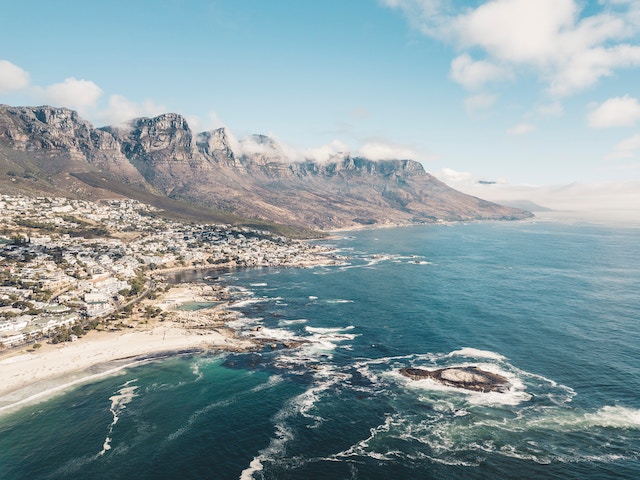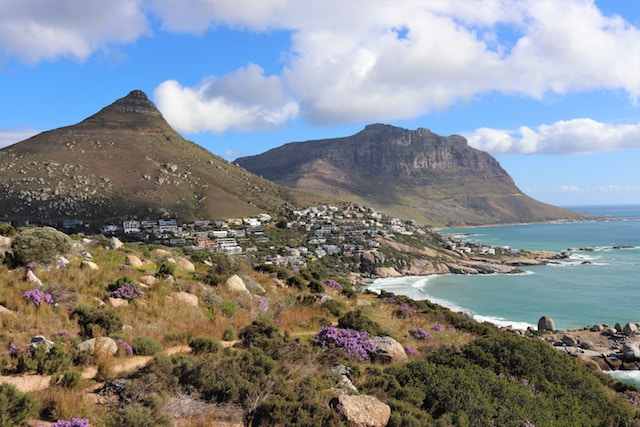A Woman’s Place: Sexism in South Africa

Last summer, I spent three months living, working and falling in love with Cape Town, where I worked as an intern for an incredible social enterprise. I spent my weekends adventuring around the Western Cape and experiencing everything the Southern-most province of the country has to offer.
I had been in Cape Town for about two weeks when I found myself, for the first time in my life, being told that as a woman it was not my place to speak up over a man.
On the Camps Bay Beach, vendors walk up and down the sandy shoreline approaching beach-goers and trying to sell their goods. On this particular day, our group, with our blatant North American accents caught the eye of one particular knick-knack vendor. He was sporting a mass of dread locks underneath a hat decorated with the typical Rastafarian color scheme of red, green, yellow and black. He offered to sell his goods for what he promised was a very good price.

When we politely told him we weren’t interested, he began kicking sand at us, and in raised tones began to tell us that we were in his country, his city, on his beaches. According to him, we thought we could do whatever we wanted here but he was here to tell us this was not the case. When my male companions began to ask him to leave our group alone, I joined in, thinking that I should try to explain that we just wanted to enjoy our beach day with no trouble.
This man who had just been so friendly to us was suddenly putting his patriarchal beliefs into action and was verbally attacking me.
As soon as I opened my mouth in protest, his eyes darted to me and his face contorted into a look of disgust. “And YOU!” he exclaimed, “Should know your place as a woman NEVER to speak up over a man!”
In my bewilderment, I froze and found myself unable to respond. This man who had just been so friendly to us was suddenly putting his patriarchal beliefs into action and was verbally attacking me, a young, 19-year-old Canadian female who had only ever been taught that the world was her oyster and no man could ever tell her what was “a woman’s place.”
To this day, I still think of the possible retorts I could have given him, but in that moment nothing would come out. Many people on the beach around us stared, and everyone in the group was shocked. Luckily, we soon got him to leave us alone, he moved onto his next group of possible customers, and we continued on our day, enjoying the sun setting over the South Atlantic.
The history of women’s rights in South Africa is a clouded one, as females have historically been regarded as less important than their male counterparts.
When asked to describe my experience in Cape Town, I often find myself saying: “It was the best three months of my life.” I also like to say every experience was a positive one, including this encounter with the Rastafarian man. It opened my eyes within my first few weeks in the city to cultural issues I was unaware of.
For as amazing a city as it is, it is also plagued by patriarchal characteristics. The history of women’s rights in South Africa is a clouded one, as females have historically been regarded as less important than their male counterparts. This is a characteristic that transcends many populations, regardless of their racial, ethnic or economic background.
A Woman’s Place: Sexism in South Africa
Throughout my time in Cape Town, I came across a few other scenarios regarding negative treatment and attitudes towards women. Having said that, I still describe it is a very welcoming and extremely friendly city. Learning the customs and norms is an important thing to learn about any culture and country a traveler might find herself (or himself!) in. South Africa is no exception to this rule.
Walking away from the beach that day, I came to the realization that I had experienced something that commonly affects girls’ and women’s lives all over the world—but it was something I had only ever read about in books or heard about on the news. It was an aspect of our world that I was fortunate enough to have avoided for my entire life up until then. It was an experience I will carry with me as a reminder to how lucky I am to come from a place with little to no tolerance for behavior that restricts anyone from just and equal treatment, regardless of their gender, race or economic background.
A Woman’s Place: Sexism in South Africa top photo credits: Jessica Shen and Unsplash.
Have you traveled to South Africa? How was your trip? Email us at [email protected] for information about sharing your experience and advice with the Pink Pangea community. We can’t wait to hear your story.









Hi Megan,
Great blog and extremely well written. Clearly you had an interesting experience and one worth sharing. Enjoy your summer!